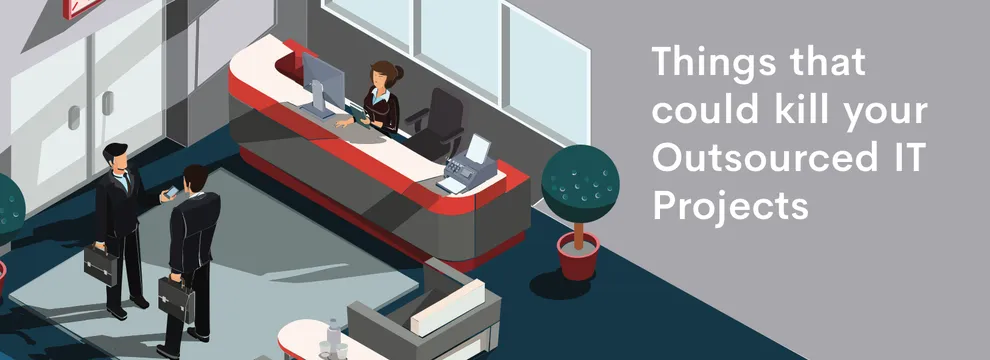Things have changed already in the industry. People are well aware of the rapid release cycles, technological changes and the way agile development is happening these days. And these changes are good, since you get to see things very clearly in real-life without having to plan months before you execute them.
Rigid scoping

Scoping is the most important thing that dominates the entire lifecycle of a consulting engagement. Having a rigid scope might put the entire project under huge risk. Let’s be honest, nobody knows anything solidly when they start out to work on an idea from scratch. And even if they have a solid idea and workflow structured, it is going to go down for four iterations as the product is being built.
A scope is just a prediction about what could go into the product to set it’s milestones. Being flexible with the scope (either scaling the scope down or increasing it) will go a long way when it comes to building a product that will work with your users. Once your product hits a critical mass, your users will be the one setting the scope for your product and not you necessarily.
Micromanagement

Micromanagement is demotivating, frustrating and not good for anyone who is being micromanaged. Empowering people is super crucial for any manager or a leader. Micromanaging Project Managers think that they have hit the result, but all that they are left with, is a bunch of frustrated team members looking to take a bit of you when they get a chance.
Unrecorded Conversations

Meetings are important. And I’m not talking about the closed room meetings alone. I’m talking about the small meetings that you might have with your consulting company through different means. It is very important to record everything that you communicate with your counterpart. This prevents all the miscommunication that could arise down the line.
Scattered Documentation

We’ve seen people maintain numerous documentation for one single product, and a reference document to know which document to refer to when in need. This is bad. The last thing you would want to spend time on is to maintain multiple documents, instead of focusing on what really matters for the end-user.
Maintaining one single document for one product is the best way to go about it. That will be a transparent reference point for the entire team and will also have everyone aligned to one single north star.
Over Planning

This is literally the mammoth task of everything leading to deadline slippage. Over planning and overly thinking about risk management causes delay in delivery. And involving the development team in planning meetings is literally a crime.
Planning in small increments or from one milestone to the other is very efficient. This allows everyone to focus in small iterations and learn from its complexities rather than to aim for the big one and learn one big expensive lesson.
These are the learnings from some of the experiences we’ve had working with customers across the world. We believe this will help you or your counterpart work better together. And hey, talk to us if you need to build something great.
Subscribe to our newsletter
Get the latest updates from our team delivered directly to your inbox.
Related Posts
AI's ROI grows with time. You just don't realize that yet. Let's call it ROA.
Artificial Intelligence is at the center of today's innovation. Thanks to the disruptive capabilities powered by scalable machines. Here is a quick guide to calculate the return on investment on Artificial Intelligence and the impact it can have on your business. Specifically for the Middle East markets.
10 security measures you need to implement in your app NOW
Hacking in any amount isn't too much of a good thing. That's why it's important to protect your data as and when you can. Here are the top 10 ways in which you can beef up the security of your app.
Five use cases of Artificial Intelligence for the next decade
The market value of Artificial Intelligence is expected to reach $39 billion by the year 2025. Here are some of the use cases and industries that will be a part of this huge revolutoin. And how Skcript is taking the lead here!

